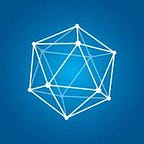Code4Dev Workshop: open-source libraries for detecting informal landfills
In the context of the first Code for Development workshop, we continued introducing our tools, Satproc and Unetseg, two open-source libraries for processing satellite imagery. We provided a practical explanation about their application for detecting informal landfills, an issue which has a negative impact on the environment and on socio-economic development.
In this post, we share with you the full recording of the workshop and its most relevant aspects, in case you missed it or want to watch it again. And, at the end of this post, we explain step by step how you can run the code and start detecting open landfills yourself.
What is Code4Dev?
Code4Dev is a network of developers who work in Latin American and Caribbean governments, and who support the digitalization of the public sector. In 2021, Dymaxion Labs joined this network to make our solutions available to solve public issues.
The network is supported by the Inter-American Development Bank, a multilateral bank that also leverages the Code for Development platform, which has the purpose of providing access to scalable solutions for public administrators in Latin America and the Caribbean.
What is the contribution of our libraries, Unetseg and Satproc?
Satproc and Unetseg are two open-source libraries developed in Python for processing satellite imagery. Their combined use allows for a more efficient monitoring of objects of interest in large areas. This kind of tools are highly demanded by public administrators in Latin America and the Caribbean because they are scalable, affordable and help extract information for decision making.
Specifically, Satproc is useful for working with a large number of geospatial raster images — from satellites, drones, etc. — and processing them to train machine learning models, in order to detect semantic segmentation problems or objects. It has different features to make adjustments to various types of images, making them usable for the algorithm.
On the other hand, Unetseg is a Python package which allows the calibration of deep learning models for a semantic segmentation based on the U-Net architecture. It is specially set to work with drone, aerial and satellite multispectral imagery of different spatial resolutions.
Solving public issues with open-source tools: detecting open landfills
With our libraries, almost any object of interest in large areas can be monitored. Monitoring large areas usually implies the use of many resources, and human mistakes can be made during the data collection process, which leads to non-comparable data or, in other words, loss of information and resources.
The libraries can be used to detect vulnerable settlements and burned areas after a wildfire, among many others. This time, along with Bunge & Born, we focused on their application for detecting open landfills, an issue which affects the global south in particular.
Open landfills not only have an impact on the environment — they represent around 27% of waste disposal and treatment in Latin America and the Caribbean — , but also they have negative consequences on social and economic aspects of society, mainly affecting vulnerable populations.
How can I access and use these tools?
All of our tools are available at our GitHub. There you can find the code and relevant documentation to get further information.
However, at Dymaxion Labs we strive to eliminate access barriers and to keep in touch with the community to clarify their doubts. Thus, we have made the commented code available in Google Collab, for you to understand in depth each action taken and to run it directly from the web.
Among several topics, we discussed how to download satellite imagery to perform the analysis, how to tag images, and which data percentage should be used for training and validation based on the initial amount of data.
Below you can find the links to access the code and the tutorial video to get down to business.
The imagery, as well as our libraries, are open-source and they are licensed to be used for commercial purposes. If you would like to learn more about our solutions or discuss its application for other objects and/or areas, please do not hesitate to contact us.
